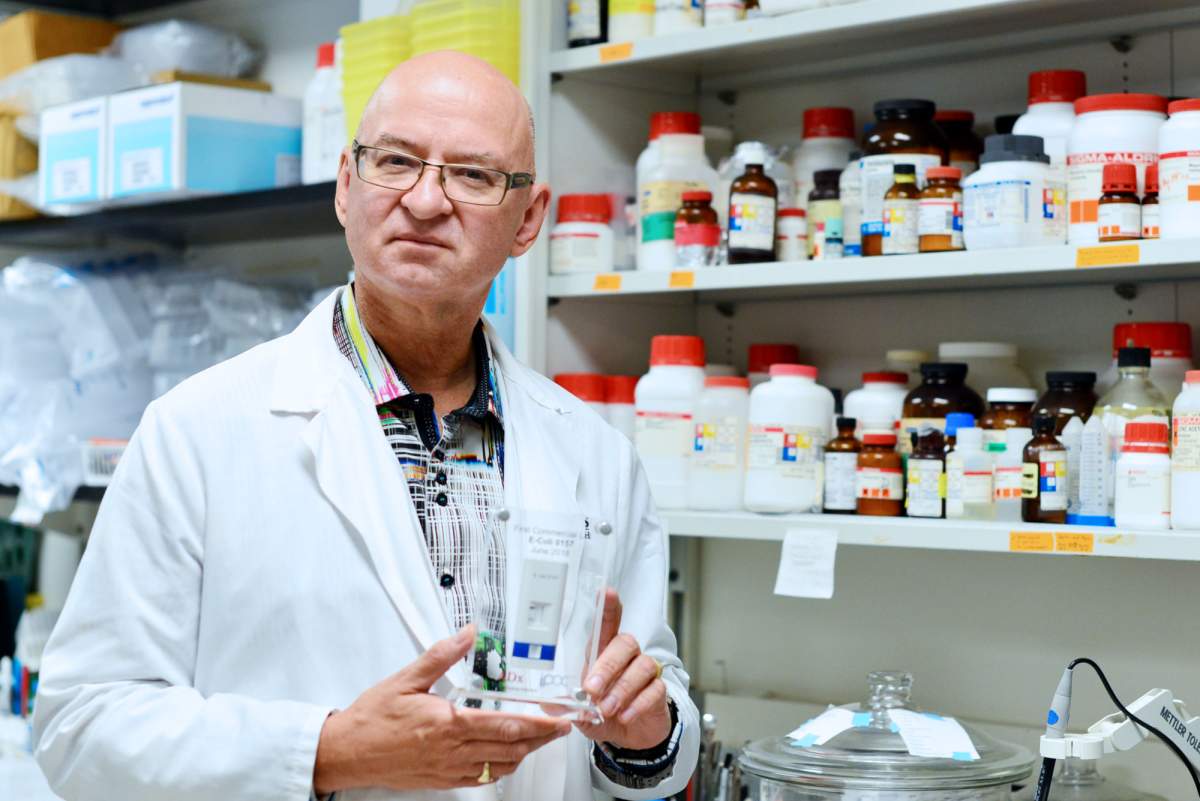Amid the latest warning over concerns of E. coli contamination in romaine lettuce, researchers out of Western University are promoting a new rapid testing kit that could make such widespread alerts a thing of the past.

The goal is to identify that same strain of E. coli, known as 0157, in your food before it ever leaves the processing plant.
“Culture, which is the classic way that takes days, and genetic testing, which is a little faster but it’s very expensive and technically quite demanding. It also has some downsides because it finds dead bacteria just as well as it finds live bacteria.”
The Western-developed kit, on the other hand, is able to show results in under 24 hours by detecting a protein unique to that E. coli bacteria. To use the kit, you take a sample of whatever food you want to test and incubate it in a fluid for a few hours.

Get weekly health news
“Then you take a little drop of that fluid out and you put it on what looks like a pregnancy test. The fluid flows through and there’s a first line that turns red. If it turns red, then it means the kit’s working, the fluid’s flowing,” he said.
“If the second line turns red, it means ‘wait, stop, you’ve got the 0157 bacteria here! Get rid of that food!'”
The kit has been approved by Health Canada and is currently making its way to food processing plants across North America.
“Immediate application is for small- to mid-sized food producers which sounds like it’s a niche market but it’s actually a huge market. We think it can go well beyond that to places like fast food restaurants, food production areas, groups like Whole Foods who make a lot of their foods and products.”
Rieder notes that there are some existing rapid testing kits for E. coli, but says they don’t perform as well in that the results don’t come as quickly and there are differing rates of false positives and false negatives.









Comments
Want to discuss? Please read our Commenting Policy first.